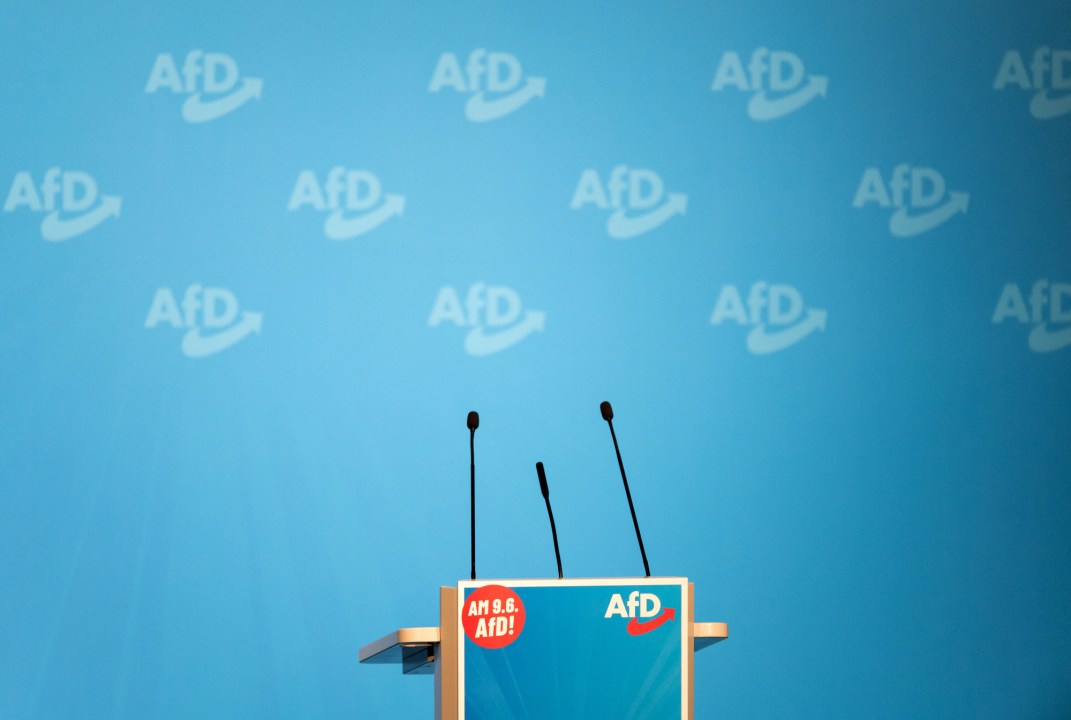Germany has a new government. It may also have a new government in waiting. On the same day that the centre-right Christian Democratic Union (CDU) and centre-left Social Democratic party (SPD) announced they had concluded coalition talks to form a government, a poll showed the hard-right Alternative for Germany (AfD) is the most popular party in Germany. A quarter of all voters now support the AfD. Since the election in February, the CDU has lost 5 per cent of its support.
It’s easy to see where it all went wrong for the CDU. Having promised fiscal responsibility, moderate right-wing governance, and the return of controlled borders, the party has instead rolled into bed with the SPD. Somewhat sneakily, the old parliament was recalled after the election in order to pass a giant debt package that lowered the ‘debt brake’, which is seen as protecting taxpayers from yet more government over-spending. The new parliament would never have supported such a move.
In return for lowering the debt brake, the CDU has had to give the SPD seven ministries, including the Ministry of Finance. They’ve also agreed to a €15 minimum wage and rent freezes. Not bad for the SPD, which only won 16 per cent of the vote. To win over the Greens, the CDU have said that another €100 billion will be spent on climate change, while reaching net zero by 2045 has been put into the German constitution. As you need a two thirds supermajority to change the constitution, there seems little chance that pledge will be removed.
Add in Trump’s tariffs, ever-rising taxes, and high energy prices and you have a recipe for yet more lay-offs and bankruptcies. German’s export model looks increasingly fragile and as Boomers increasingly retire, social spending is bound to rise.
Nor does it help that it remains far too easy to get German citizenship. Even though the coalition agreement includes abolishing the three-year long ‘turbo naturalisation’ process, immigrants can still get citizenship after only five years rather than the eight years it used to take. As it is mostly low-skilled migrants or asylum seekers moving to Germany at the moment, that means the state will be taking on an even greater benefits and pension burden.
Unsurprisingly, the German public are upset. Not only has the CDU dropped below the AfD in the polls but their leader Friedrich Merz is considered untrustworthy by 70 per cent of people. Merz has responded by saying that he won’t take criticism from the ‘far-right’, telling those worried by the polls ‘not to stare like a rabbit at a snake’. That may be enough for the party leadership and their members in parliament but the CDU grassroots are increasingly upset.
They have good reason to be. When the CDU dared to vote with the AfD in the last parliament, they faced a wave of outrage from the media and protest groups, many of which had state funding and links to left-wing parties. After the election, the CDU tabled 551 questions into state funding of these murky NGOs, only to withdraw them so they could form a coalition with the SPD. Rather than find out how much taxpayer money was spent on those who blockaded the CDU HQ in Berlin or the antifa who occupied some of their offices, they are going to give another €180 million to likes of ‘Living Democracy’. No wonder that even pro-CDU voices are saying the party has chosen to lose the culture war.
All of this explains why the party has been losing ground to the AfD in the polls. But rather than responding to the concerns of voters, the CDU and German society have instead embarked on a witch-hunt against those who support the AfD.
Normally the oldest member of the Bundestag becomes ‘senior president’. This should have been Dr Alexander Gauland, who was a member of the CDU for 40 years. But because he now belongs to the AfD, and to prevent him from giving a speech at the opening of the Bundestag, the CDU changed the rules to give the position to the far-left Dr Gregor Gysi.
Germany has become hysterical about the AfD. The party is banned from participating in the parliamentary football team ‘FC Bundestag’, despite winning a court case over the matter. The editor-in-chief of a pro-AfD paper was given a seven-month suspended sentence and fined for posting a meme jokingly showing the old interior minister holding a sign reading ‘I hate freedom of speech’. In Bavaria an altar boy was dismissed by his priest after taking a selfie with the controversial but charismatic AfD politician Maximilian Krah.
The coalition agreement between the CDU and SPD calls for lying to be banned in Germany. Perhaps the CDU should therefore reflect on their own broken promises to voters. So long as they keep giving in to the left, they will continue to sink in the polls. Meanwhile the AfD will benefit from being in opposition, as it waits for this coalition to become so unpopular that it collapses. The AfD may not be in government yet – but it seems only a matter of time.








Comments